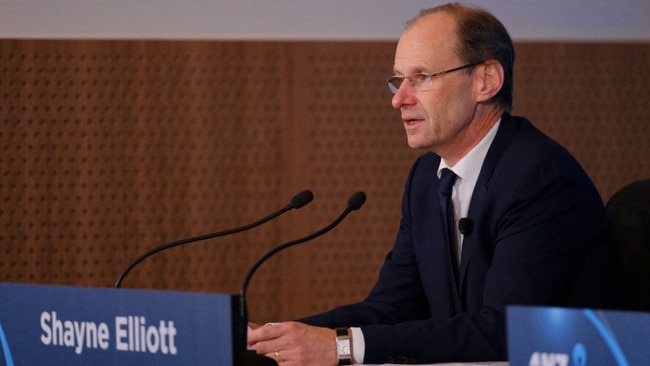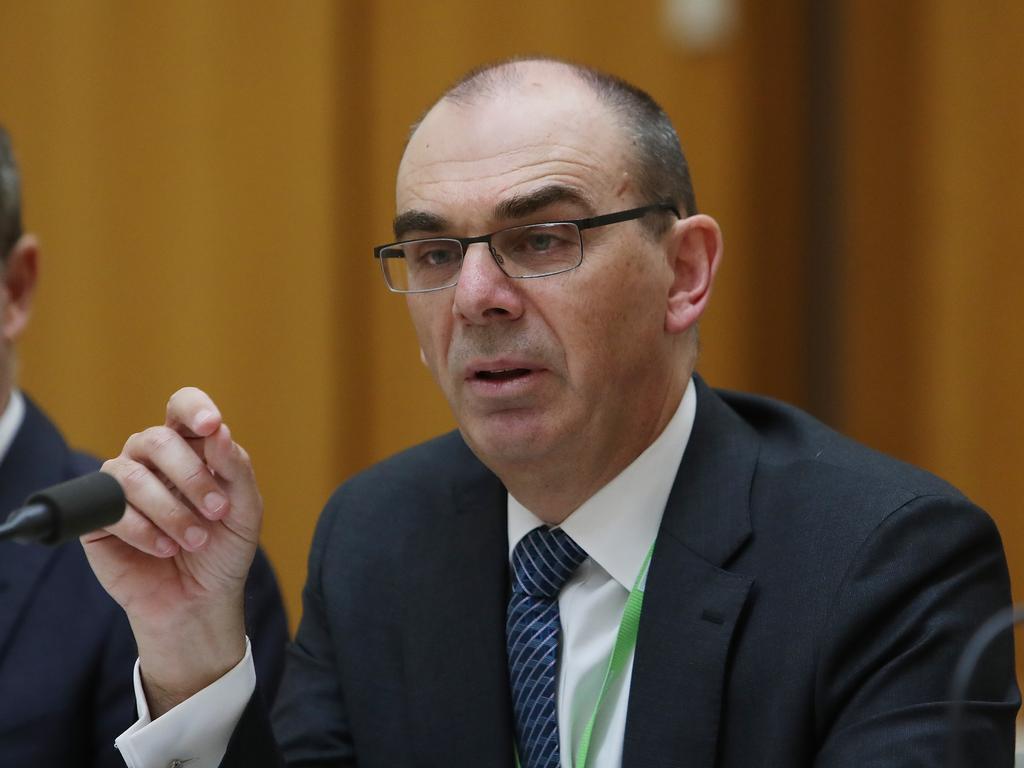ANZ boss Shayne Elliott backs measures to cool housing market
Shayne Elliott says it’s a ‘reasonably good idea’ for regulators to dampen activity in the housing sector, but notes little evidence of first home buyers being widely shut out.

ANZ chief executive Shayne Elliott says it’s a “reasonably good idea” for regulators to dampen activity in the hot housing sector, but notes little evidence of first home buyers being widely shut out.
Mr Elliott noted regulators should give consideration to measures that would cool activity, given the rampant rise in house prices.
“It‘s probably a reasonably good idea,” Mr Elliott said in a Monday radio interview. “Whenever markets move quickly up or down, it’s always a time for concern. And what we’re seeing is house prices accelerating quite strongly … you’ve seen the numbers 20-odd per cent across the country this year and people forecasting even more increases next year, not at that same level.”
On Friday, CoreLogic data showed house prices have climbed 20.3 per cent over the past year, marking the fastest growth rate since June 1989.
That came after members of the Council of Financial Regulators said they’d held discussions about potential macroprudential policy responses to the hot housing market, last month tasking the Australian Prudential Regulation Authority to put together a framework of possible measures.
Those measures can include caps to certain types of lending, such as investor or interest only loans, as introduced by APRA in the last housing boom. Tighter restrictions on lending to those with smaller deposits or those seeking loans that are at six times or more their annual income, can also be implemented.
Mr Elliott said while the data pointing to one in five borrowers seeking mortgages of more than six times their income was concerning, the proportion of household income being used to service home loans was at a 20-year low.
“If you look at how much of a household income is used to pay interest on all of their debt. That’s at a 35-year low,” he added. “So people actually do have the capacity if interest rates move higher.”
Commonwealth Bank’s head of retail Angus Sullivan said the lender saw a case for very modest interventions to “help make sure that the market stabilises where it is”.
“One of the challenges that obviously comes with increasing property prices is the challenge for first home buyers to get into the market, that’s sort of front of our mind in thinking about what’s the best way to help support the market appropriately but also make sure that first home buyers are in no way disadvantaged.”
His comments echo those of CBA CEO Matt Comyn who last month called for “modest steps” to be taken soon by regulators or banks themselves to rein in the housing boom.
CBA in June changed its home loan assessment threshold with the floor rate rising to 5.25 per cent from 5.1 per cent. The floor rate measures whether a borrower can service their mortgage at an interest rate of 5.25 per cent.
That rate is looked at in addition to an APRA buffer that sits at 2.5 per cent.
In assessing whether someone can repay their home loan, banks use the higher of the mortgage interest rate charged plus the APRA buffer, or their floor rate.
Mr Elliott said while he did not want to dismiss concerns about house affordability or first home buyers getting into the market, data suggested they were not completely shut out.
“About 10 or 11 per cent of loans being given by the banks at the moment are actually to first time buyers, so they’re still there,” he said. “That hit a peak of more like 17 per cent last year because of all those grants and subsidies and promotions the government did, so it’s come off a little bit. But 10 or 11 per cent of the market that’s pretty normal … it may mean that first home buyers are being pushed into different parts of the market, more out of town, more apartments.”
On Covid-19 vaccinations, Mr Elliott said the bank was tracking towards having 93 per cent of staff having received two jabs.
When asked about an ANZ vaccine mandate he said: “It‘s something we’re looking at. I don’t know that we need to.”
Separately, Mr Elliott said he didn’t think the debt travails of giant Chinese property developer Evergrande should be likened to what investment bank Lehman Brothers endured ahead of the global financial crisis.
“It’s going to have an impact on China and about how China views the world … there’s a lot of leverage we’ve seen in China,” he said.
“The good news is the Chinese government has vast resources, they’ve shown over time they can, and they will, deal with these things well. So I’m pretty confident it will be dealt with, but I don’t think you can dismiss it and say it has no impact. It must do.
“It must have an impact on the community over there … mums and dads, investors.”








To join the conversation, please log in. Don't have an account? Register
Join the conversation, you are commenting as Logout